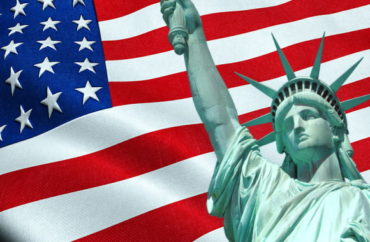
A conservative editor for Harvard University’s student paper The Harvard Crimson said that the Ivy League university’s culture makes it difficult to be patriotic.
“It’s hard to be patriotic at Harvard,” Carine Hajjar wrote in a recent column for the student paper. Hajjar, a former editorial intern at the National Review, regularly writes about what it is like to be conservative at Harvard.
“Academically, it’s the kind of pressure that makes you couch any kind of praise of the U.S. with critique,” Hajjar said.
She explains what the pressure feels like:
The formula is as follows: ‘So yeah, the U.S. has provided the most extensive source of humanitarian aid in the history of the world … but it’s a horribly imperialist enterprise.’ Swap imperialist with racist, sexist, homophobic, undemocratic, and hateful at your leisure.
She said that “extreme ‘wokeism'” of the “far left” isn’t patriotic, because it “demands conformity to progressive ideals and shuns of any trace of American pride.”
It is a problem that the conservative student sees regularly at Harvard:
It’s an exercise in shame, one that requires a ‘true American’ to live in a state of constant penance, and is a strain of thought that permeates many of Harvard’s political and academic circles. It’s a classic Harvard problem — complain, but don’t fix; ostracize, but don’t engage.
Hajjar said that the Christian concept of agape, or selfless love, is a better way to view patriotism.
She said:
An agape love of country is a healing love. It means accepting the sins of the nation but loving it anyway, in hopes of mending the nation’s open wounds. It’s a risky bet because agape is reciprocal. That means that there is a constant hope that in loving the nation, it will love you back.
She envisions a university “where the student body celebrates Memorial Day and Veterans Day, while students thoughtfully discuss the mistakes the U.S. military has made in their classes.”
It’s a Harvard, according to Hajjar, “where students learn about the strides the country has made in bridging racial inequalities, while remaining committed to solving the lingering issues of systemic racism.”
IMAGE: Donfiere/Shutterstock
Like The College Fix on Facebook / Follow us on Twitter




Add to the Discussion